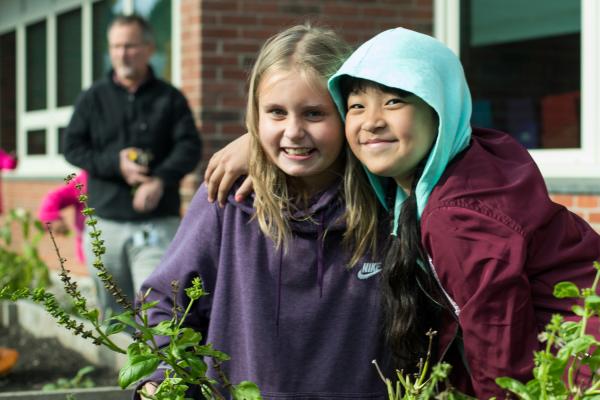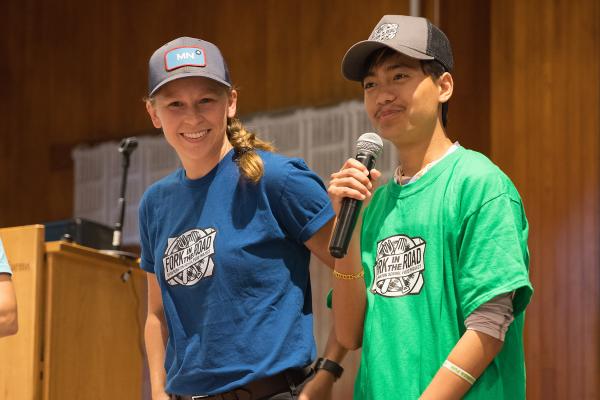Discovering Farm to School at Any Grade Level
What is farm to school?
Farm to school supports youth in connecting the dots of where their food comes from and how their food choices impact their bodies, the environment, and their communities at large. The goal is to help students establish lifelong positive relationships with food while supporting a more sustainable and just food system. Youth can explore food systems, and the Big Ideas of Sustainability, within any discipline, from math and science to art.
Three promising practices
Many schools have built successful farm to school programs by combining three practices: youth voice, community partnerships, and service and project-based learning.
This spring, I had the opportunity to co-teach a webinar for educators with Jeswin Antony, a high school junior and leader of the farm to school club at Harwood Union High School. Jeswin shared how his school brings these practices to life:
Starting in fifth grade, we tended to our own chicken coop. It was a good way to get students engaged in the process of taking care of something. We fed the chickens, collected eggs, and then sold or gifted them.
Coming into sixth grade, we started learning about food systems and explored the complexities of conventional farming – there was a big difference between the systems we saw in documentaries and the chicken coop behind our school.
In seventh and eighth grade, our teachers had us go in an entrepreneurial direction. We created a co-op, and each of us sold various products that we made in school. In our high school social studies class, “Creating Sustainable Communities,” the teacher asked us students what we were most interested in learning about, and incorporated those answers back into the curriculum. We created projects to help our community grow, centered around our school greenhouse.
Jeswin ended with this advice for educators: “Try to involve student voice when you plan curriculum. If you can bring in that youth voice early, then you’re guaranteed to have a lot more engagement to whatever curriculum or projects you’ve planned.”
More inspiration comes from our partners at the High School for Environmental Studies in New York City. Through the school’s leadership program, student activists are challenged to address climate change, food access, and environmental issues. One group developed a take-home planting and journaling project. Another group of students worked with a local nonprofit to establish and stock community refrigerators in under-resourced neighborhoods in New York City. In this scenario, youth leaders connected with outside organizations to identify and address the community’s needs.
Resources for getting started
As part of Vermont FEED, our partnership project with NOFA-VT, we’ve compiled a tool to offer inspiration for your curriculum based on real-world examples across grade levels preK-12. Use this as a starting point – then seek youth and community input – to get started. Download the resource.
For more specifics, here’s another Vermont FEED resource that illustrates farm to school concepts at every grade level. A few examples:
- PreK and Kindergarteners might explore the roles that people play to get food from farm to table, and their own role in the food system. Students grow seedlings for the school garden as a service project.
- Eleventh and twelfth graders can collaborate with the School Nutrition Director to analyze food purchasing in the school community and evaluate locally available options. They can share their findings and recommendations with the school.
Download this Vermont FEED resource for more ideas.
Curious to learn more? Get in touch with me about professional learning opportunities. Wishing you a restful and restorative summer!


